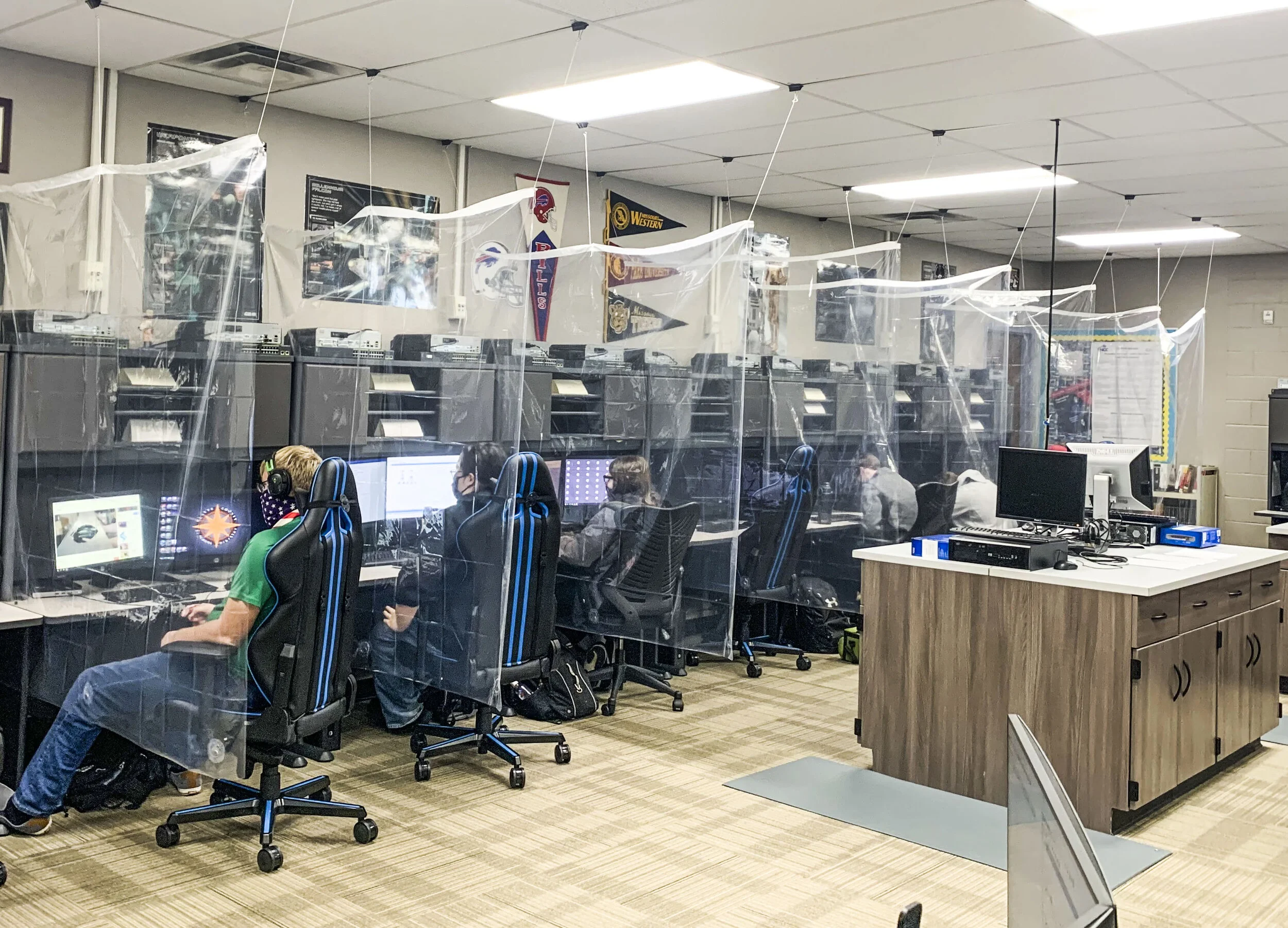More than 50 years ago an idea was planted that eventually became the Northland Career Center on the campus of the Platte County R-3 school district in Platte City.
Last week the center celebrated the 40th anniversary of the building’s commencement from when it opened in the fall of 1980. Director Brian Noller told the Platte County Citizen the center celebrated with a virtual party that involved past and present students and instructors including past R-3 superintendent Dr. Mark Harpst, original director John Bradford and Noller’s predecessor Cheryl Hill, who served as director from 2004-2011.
Noller said the day involved a lot of Zoom meetings and social media.
“We engaged all our staff and 400 students in-person in two separate videos as four of us moved through the halls capturing our students on video,” Noller said. “We had an aggressive social media campaign and were mentioned or retweeted by several local, state and national groups.”
The idea for the center was born at meeting held between representatives of the former Trans World Airlines and superintendents from Platte County R-3, Park Hill, North Platte, West Platte and Smithville in 1970 to talk about the need for a school that focused on industry-based training. In 1977, the R-3 school board went to voters to ask for support for a center and it gained 78 percent of the vote. In 1978 an advisory committee was formed before the opening in 1980.
When the center opened in 1980 it served a consortium of 3,300 students. Since then, North Kansas City, Kearney and Liberty school districts have joined the center. The only school district not still part of the center is North Platte. The center now serves about 17,000 students.
Northland Career Center’s original director John Bradford, right, was also part of the 40th anniversary celebration last week.
Although some of the programs have changed many are the same. Today students can pick from 12 different programs including newer ones such as aviation and agriculture production.
“A lot of what we did back 40 years ago is still foundational to our success now,” Noller said. “The reason kids have success in this building is because they have a hands-on experience. You come here and you learn by doing. They’re learning by not getting it right the first time and actually working through it.”
Kids spend about half a day at the Center while learning skills associated with a trade including soft skills. For instance a student who is learning welding will learn all of the different welds but will also learn how to be a foreman. The teaching program has students who read to children via Zoom. Some students received credentials that are highly sought after in the real world workplace. In the diesel program last year 15 of 18 students had an internship.
“We simulate the workplace environment,” Noller said. “While they’re in high school they can get paid to go work at a site. They can earn a wage and learn skills while still in high school. It’s a really cool program.”
With the growth of the program has come new challenges such as space. Noller said the programs have outgrown the original building. The Platte County R-3 school district owns property near Platte Purchase Road and Highway 152 that is being considered for a new high school. Noller said the Center has made a pitch to be a part of that.
“We’re just out of space,” Noller said.
COVID-19 has presented some challenges to the program. Last spring when things were shut down the Center had to go to all remote learning. This year there are 48 students who are trying to navigate the system remotely.
“That was the decision they made to be safe,” Noller said. “It’s not perfect. Hopefully second semester they can come back and visit us or even next year.”
For the kids who do attend the Center there have been safety precautions put in place like shower curtains between stations in the information technology classroom and social distancing in other areas. For instance, the diesel program’s classroom has moved out into the shop and some of the shop has moved into the classroom.
Noller said for the kids who are at home learning the experience is still better than not having it.
“At least in this case they’re engaged with a teacher,” Noller said. “They’re getting a really good education it’s just not as hands-on as we would like it to be.”
DENNIS SHARKEY/Citizen Photo
Students in the Northland Career Center’s IT classroom have to wear face masks and are separated by shower curtains.




